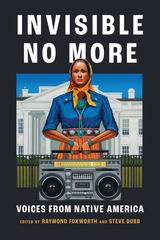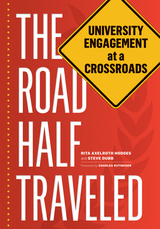
Edited by Raymond Foxworth of First Nations Development Institute and Steve Dubb of The Nonprofit Quarterly, Invisible No More is a groundbreaking collection of stories by Native American leaders, many of them women, who are leading the way through cultural grounding and nation-building in the areas of community, environmental justice, and economic justice. Authors in the collection come from over a dozen Native nations, including communities in Alaska and Hawaiʻi. Chapters are grouped by themes of challenging philanthropy, protecting community resources, environmental justice, and economic justice. While telling their stories, authors excavate the history and ongoing effects of genocide and colonialism, reminding readers how philanthropic wealth often stems from the theft of Native land and resources, as well as how major national parks such as Yosemite were “conserved” by forcibly expelling Native residents. At the same time, the authors detail ways that readers might imagine the world differently, presenting stories of Native community building that offer benefits for all. Accepting this invitation to reset assumptions can be at once profound and pragmatic. For instance, wildfires in large measure result from recent Western land mismanagement; Native techniques practiced for thousands of years can help manage fire for everyone’s benefit.
In a world facing a mounting climate crisis and record economic inequality, Invisible No More exposes the deep wounds of a racist past while offering a powerful call to care for one another and the planet. Indigenous communities have much to offer, not the least of which are solutions gleaned from cultural knowledge developed over generations.

A growing number of universities are dedicating resources to support their surrounding communities, but much potential for advancement remains. A university’s mission as an “anchor institution,” as defined by the authors, is to consciously and strategically apply the institution’s long-term, place-based economic power, in combination with its human and intellectual resources, to better the welfare of the community in which it resides. Drawing on ten diverse universities as case studies, this eye-opening book explores practices and strategies that can be employed to improve conditions in low-income communities and emphasizes the critical roles of university leaders, philanthropy, and policy in this process. To date the most comprehensive account of the range of roles played by universities as anchors in their communities, The Road Half Traveled provides a forward-thinking perspective on new horizons in university and community partnership.
READERS
Browse our collection.
PUBLISHERS
See BiblioVault's publisher services.
STUDENT SERVICES
Files for college accessibility offices.
UChicago Accessibility Resources
home | accessibility | search | about | contact us
BiblioVault ® 2001 - 2024
The University of Chicago Press









